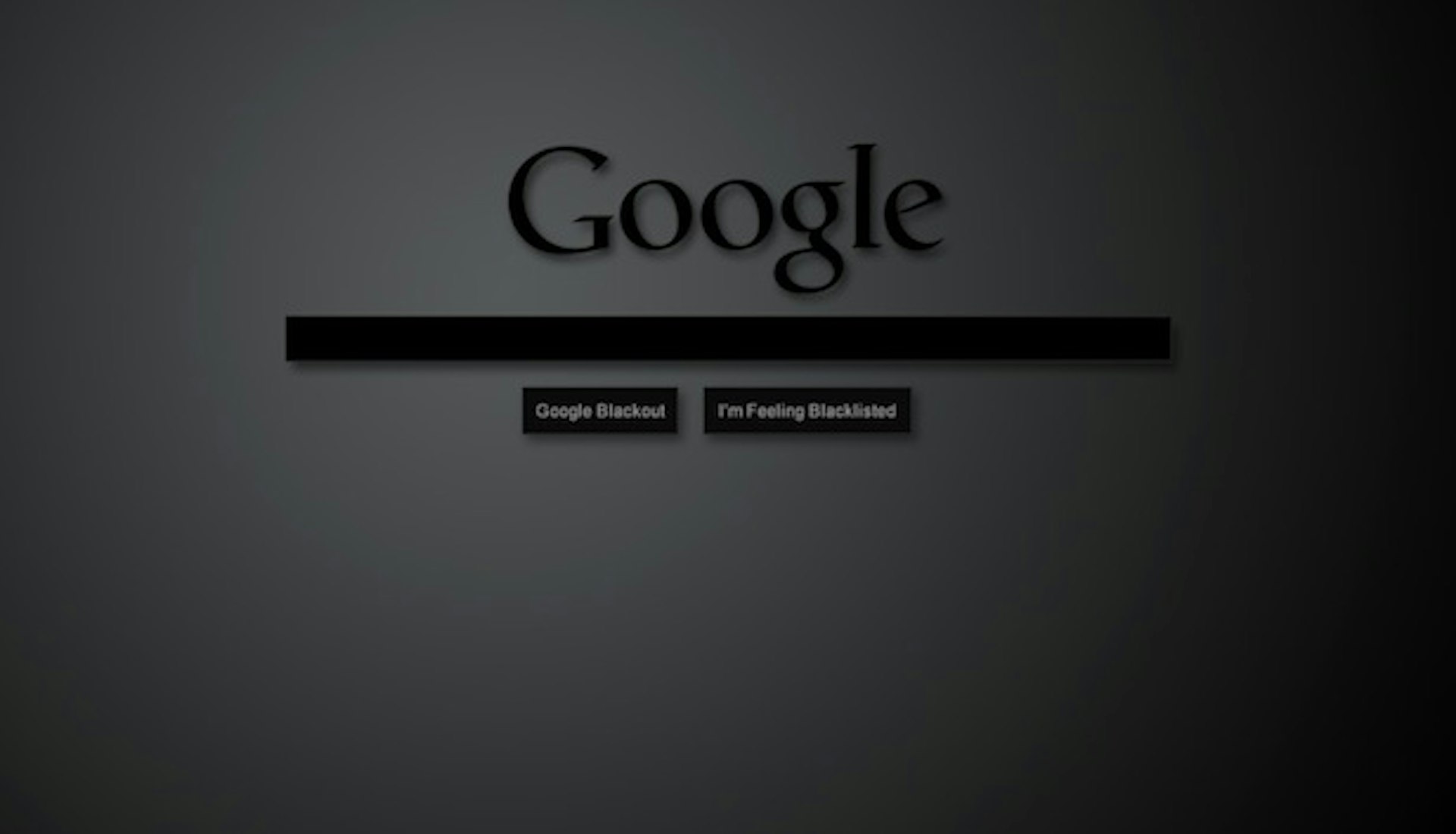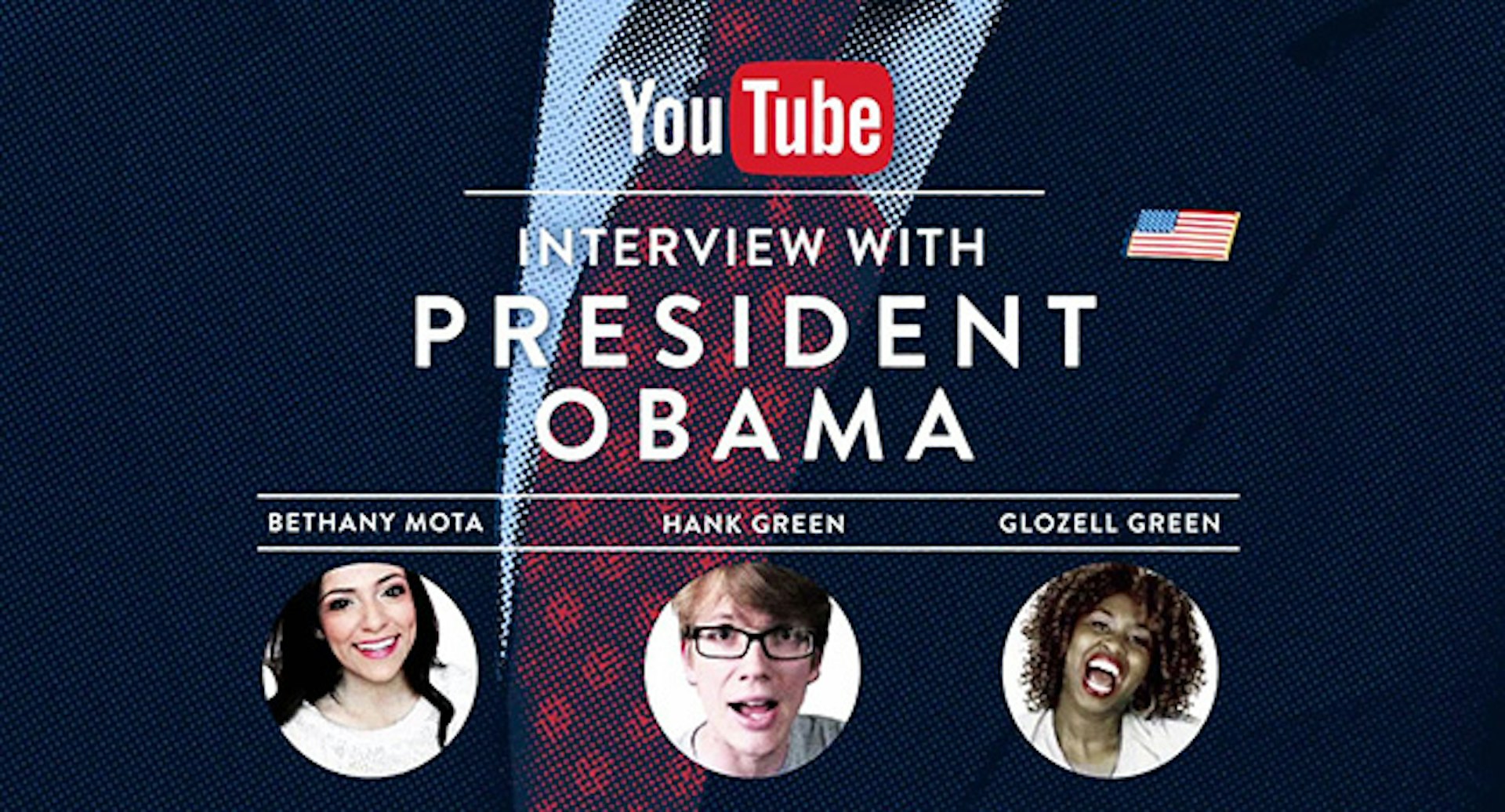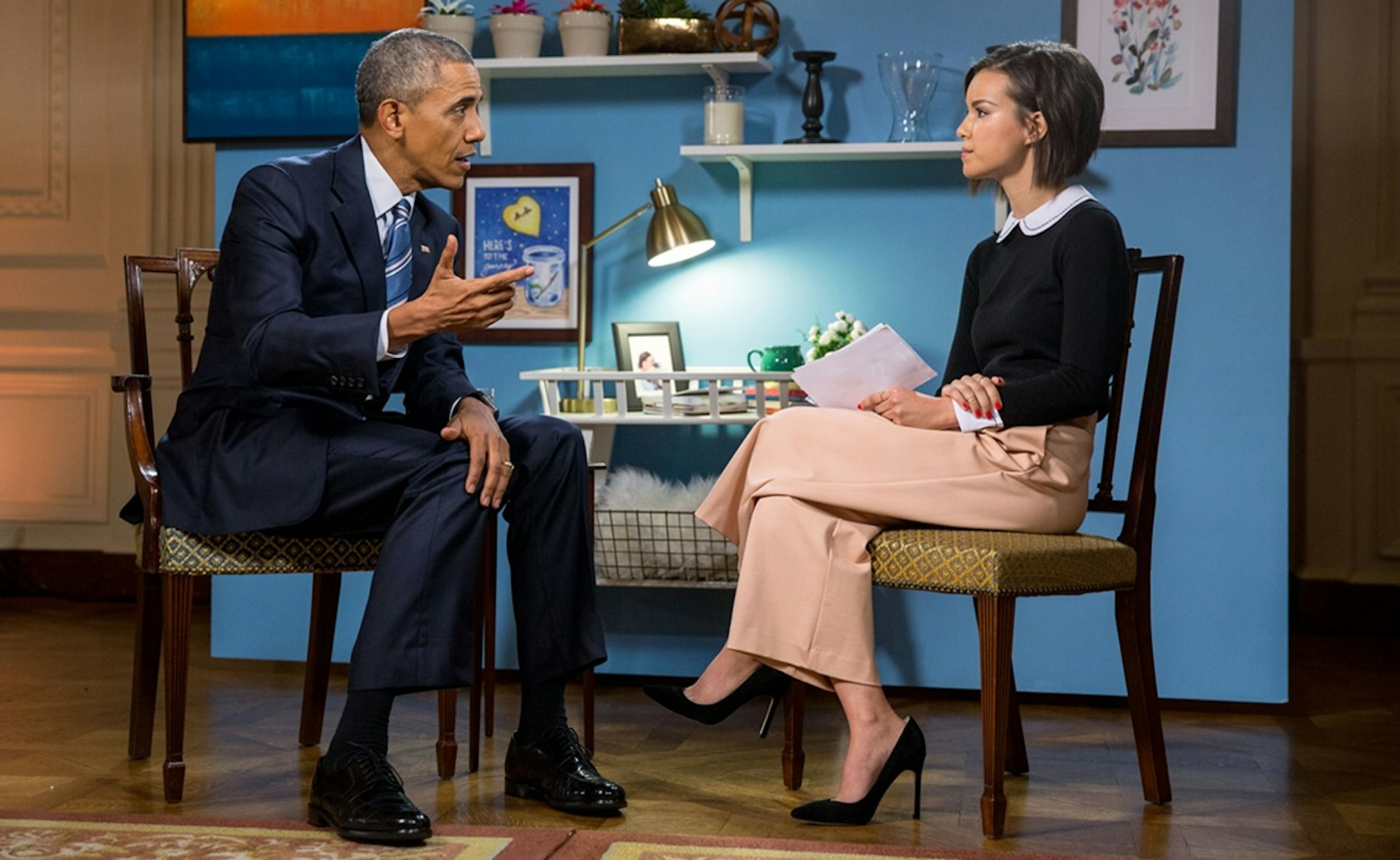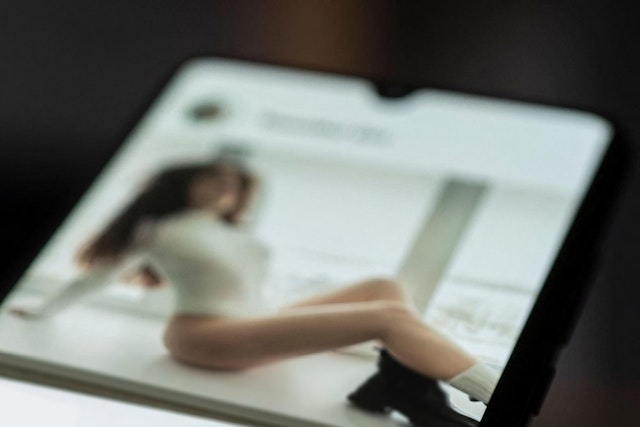White House visitor data shows the close involvement of Google employees in the White House strategy to sidestep traditional media, helping it frame key events in the way most helpful to the administration.
On at least 28 separate occasions, Google digital production staff huddled with White House officials in charge of digital strategy and outreach, helping the White House organize interviews with the president through Google’s YouTube and Google+ hangouts.i The meetings were clustered mostly around the president’s annual State of the Union addresses.
President Obama has participated in YouTube interviews following each of his State of the Union addresses since taking office, taking questions directly from Americans and bloggers handpicked by Google.ii iii iv His first address, on January 27, 2010, offers insight into how closely Google worked with the White House to support Obama’s use of new media strategies.
YouTube’s head of news and politics, Steve Grove, conducted an exclusive 45-minute interview with the president on February 1, 2010 in which questions were submitted by Americans and chosen online.v A “Behind the Scenes” YouTube video of that interview shows Obama pointing to the traditional media assembled in the Oval Office to cover the YouTube event. “You’ve got all of these old media people here,” the president joked.vi
Obama’s use of YouTube, Google+ and other social media channels grew out of his campaign’s effective use of the channels during his first 2008 campaign. According to post-election studies,vii Obama’s campaign learned during his presidential run that he could sidestep the traditional media filter and communicate directly with his 13 million grassroots supporters using Internet channels like YouTube.
That strategy carried over to the White House after the election, where President Obama turned what had traditionally been a weekly radio address into an Internet video address that has often been used to release major news. Google’s help has been reciprocated: President Obama has named the company in no less than three of his State of the Union speeches.viii
What the Data Suggest
Google appears to have helped select the questions posed to President Obama, even inserting questions on topics important to the company’s business, such as online piracy, net neutrality, and patent reform. Those three issues, while relatively obscure to the general public, were among the company’s top policy priorities in each of the years they were posed.
While Google and YouTube have maintained in years past that questions for the president were chosen through online voting, several media outlets reported in 2015 that in fact Google was directly involved in choosing the questions.ix x
1. SOPA
On December 20, 2011, records show, Google’s lobbyist, Johanna Shelton, gathered for a White House meeting with intellectual property enforcement coordinator Victoria Espinel, along with technology lobbyists and lawyers from Facebook, Yahoo, AOL, and the non-profit Center for Democracy and Technology.xi
Two weeks later, in early January 2012, Markham Erickson, a participant at the December meeting with Espinel and legal counsel to the Google-backed Net Coalition told Fox News: “a number of [tech] companies have had discussions about blacking out services” to protest the Stop Online Piracy Act legislation. xii
That “blackout” occurred on January 18, 2012, when Wikipedia, Reddit, Mozilla, Google and other websites coordinated a service blackout to protest the SOPA bill. Google reported collecting over seven million signatures against the bill.xiii
Following Obama’s 2012 State of the Union address on January 30th, the president participated in a YouTube, Google+ Hangout question-and-answer session with Grove in which five questioners were invited to ask questions of the president. Others submitted questions via the White House YouTube page.xiv
One of those submitting questions asked the president about his stance on the SOPA bill. Obama responded that he believed it was possible to go a different route in combating online piracy and that it didn’t have to be SOPA.xv The remarks represented a significant policy victory for Google, which stood to lose significant advertising revenue from any clampdown on pirated material accessible through YouTube and Google.

Obama echoed Google's lobbying push against stronger piracy protections
2. Patent Reform
A year later, on January 24, 2013, Shelton joined YouTube’s Grove and several Google marketing staffers in the White House for a meeting with Kasie Coccaro, a White House staffer in charge of digital outreach. While the ultimate purpose of the meeting is not known, the composition of its participants suggests it was called to prepare for Obama’s 2013 post-SOTU YouTube interview.xvi Visitor logs also show Shelton meeting alone with Coccaro that same day.xvii
Three weeks later, on February 13 and 14, Shelton, Google Public Policy Vice President Susan Molinari and Google Copyright Counsel Friedrich von Lohmann joined several other Silicon Valley lobbyists and executives in a series of three meetings with Espinel, the White House intellectual property enforcement coordinator.xviii
On February 14, 2013, Google+ broadcast President Obama’s fourth post-SOTU YouTube interview, this time a “fireside hangout” in which five bloggers were chosen to interview and ask questions of the president. YouTube’s Grove reminded viewers at the outset of the interview that neither the president nor anyone at the White House had seen the questions ahead of time.xix
One of the bloggers chosen for the fireside chat interview with the president was Limor Fried, an activist in the open-source hardware community.xx Fried asked the president what he would do to limit the abuse of software patents and whether he would be supportive of limiting patents to only five years.
Obama replied that patent trolls were a significant problem and that they were essentially “hijacking” the ideas and creativity of others to extort money. The president remarked that he was committed to pulling together additional stakeholders to build consensus on reforming patent laws.xxi
The remarks again aligned perfectly with Google’s position on an issue that had posed a significant threat to the company.xxii
3. Net Neutrality
A year later, on January 30, 2014, Google’s Shelton joined several members of Google+ production staff for a “live chat” interview with President Obama, during which he again answered recorded questions from Americans on policy issues.xxiii
Art Hernandez, a participant in the “live chat” session asked the president to affirm his support for net neutrality rules, another longtime policy objective for Google with broad financial implications for the company.xxiv The president reiterated his support for the rules and expressed confidence that the FCC would use its authority to pass strong regulations on broadband providers.xxv

Questions Raised
Google aided the White House’s public relations effort by circumventing traditional media. Did it also inject questions on issues important to its business? To illustrate how problematic that might be, it’s worth imagining Fox News asking the president about media-ownership rules for its parent company at a presidential debate, or MSNBC asking Hillary Clinton about issues important to its parent, Comcast.
The sequence of events calls into question Google’s claims that the interviews were objective, impartial news events. White House logs show that Shelton, Google’s top White House lobbyist, accompanied the production crew to interview the president on three different occasions.xxvi Would it be appropriate for Disney’s chief lobbyist to accompany the ABC News crew to a presidential interview?
Did Google coordinate questions with the White House? On two occasions, Google’s top White House lobbyist, Johanna Shelton, met with Victoria Espinel the relevant policy official in the days and weeks prior to the SOPA and patent reform questions being asked of the president.xxvii
The timing raises questions about assurances, made to viewers by YouTube’s head of news and politics, Steve Grove, that neither the president nor anyone at the White House had previously seen the questions. It also raises the possibility that Google and the White House may have agreed to include questions that affected the company’s business.
Notes
i https://www.whitehouse.gov/briefing-room/disclosures/visitor-records (UIN#’s: U76180, U76610, U76181, U76878, U07859, U57875, U58856, U76843, U02411, U72020, U72280, U77986, U82106, U81859, U29096, U32655, U53238, U53237, U53097, U53697, U77987, U72108, U51762, U51746, U51853, U32689, U00872, U66031, U72133, U53722
ii https://www.whitehouse.gov/photos-and-video/video/2012/01/30/president-obama-s-google-hangout
iii https://www.youtube.com/watch?v=-gU09bWifFo
iv https://www.youtube.com/watch?v=XsnlXMAjk5o
v https://www.whitehouse.gov/the-press-office/interview-president-youtube
vi https://www.youtube.com/watch?v=z2-17cfa3mQ
vii http://www.slideshare.net/PingElizabeth/social-media-lessons-from-the-obama-campaign
viii 2011, 2014 and 2015
ix http://www.mediaite.com/online/google-helped-choose-youtubers-obama-questions/
x http://www.buzzfeed.com/evanmcsan/google-helped-choose-the-questions-youtube-stars-asked-obama#.oqZvkQpPL
xi White House Visitor Logs: UIN# U69117
xii http://techland.time.com/2012/01/05/sopa-what-if-google-facebook-and-twitter-went-offline-in-protest/
xiii https://en.wikipedia.org/wiki/Stop_Online_Piracy_Act
xiv https://www.youtube.com/watch?v=eeTj5qMGTAI
xv https://www.youtube.com/watch?v=bW7bNbOFr9U
xvi White House Visitor Logs: UIN# U72020
xvii White House Visitor Logs: UIN# U72133
xviii White House Visitor Logs: UIN# U77348, U77355, U77941
xix https://www.youtube.com/watch?v=-gU09bWifFo
xx https://en.wikipedia.org/wiki/Limor_Fried
xxi http://www.altageneral.com/obama-fireside-hangout-software-patent-trolls/
xxii The previous month, Google had joined other technology giants in filing an amicus brief making that argument. Accessed at:http://www.inc.com/matthew-swyers/google-facebook-take-on-patent-trolls....
xxiii White House Visitor Logs: UIN# U51762
xxiv https://www.youtube.com/watch?v=XsnlXMAjk5o
xxv http://www.huffingtonpost.com/timothy-karr/president-obama-confident_b_4708023.html
xxvi White House Visitor Logs UIN# U51853, U51762, U77987
xxvii See Endnote ix and xvi




